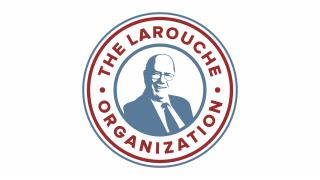Jan. 31, 2025 (EIRNS)—Barely two weeks into the second presidency of Donald Trump, the world strategic situation is one of unresolved tension, with contradictory signs issuing from the White House as to what to expect. It is a period in which dedicated organizing activity around clear-headed solutions to the existential crises facing Mankind can move mountains.
For example, on Friday Jan. 31, President Trump told journalists in the Oval Office that his administration had already held “very serious” discussions with Russia about how to end the Ukraine war, and that he and Russian President Putin “will be speaking, and I think will perhaps do something that’ll be significant.”
A hopeful sign, to be sure, since such a direct dialogue between the two heads of state is crucial to building a new security architecture which ensures the legitimate security concerns of all parties, not just some. If and when a similar dialogue occurs between Trump and China’s President Xi Jinping—which Trump has also said he wants to arrange quickly—major advances could be made on the task of building a new economic development architecture, including solving the migrant problem with great development projects in the Global South, rather than counter-productive mass deportation actions. If the LaRouche Oasis Plan for Southwest Asia were on the table for such a Trump-Xi meeting, even the seemingly intractable problems in that region could begin to be solved.
As Trump stated after his Jan. 17 phone call with Xi Jinping, three days before his inauguration: “It is my expectation that we will solve many problems together, and starting immediately… President Xi and I will do everything possible to make the World more peaceful and safe!”
Another example is the historic battle underway this week in the U.S. Senate, in the confirmation hearings for Tulsi Gabbard and Kash Patel. This is the opening salvo in Trump’s campaign promise to take down the so-called “Deep State,” and both nominees have thus far stood their ground effectively against the barrage of slanders and threats they are being subjected to. Over two dozen organizers with The LaRouche Organization also played a key role by visiting every Senate office for the second week in a row, providing copies of the damning “Liars’ Bureau” pamphlet, and engaging in hard-hitting lobbying activity.
At the very time that the nomination hearings were underway, President Trump continued his practice of keeping his enemies off balance by announcing that a half-dozen top FBI officials were being told to resign or be fired, and that a broader weeding out of that corrupt agency was also underway nationwide.
There is little doubt that Trump has upended the applecart, as far as the Establishment is concerned. But what comes next? Trump’s flight forward into the cryptocurrency craze; his migrant and tariff policies; and his attacks on the BRICS’s efforts to end colonialism, all betray a dangerous lack of understanding of the science of physical economy. His announcement of a unilateral, space-based missile defense policy quickly elicited strong protests from Russia.
And, as Helga Zepp-LaRouche stated at the Jan. 31 meeting of the International Peace Coalition, “clearly worrisome is the situation in the Middle East, where President Trump has basically repeated his initial proposal to relocate all of the Palestinians from Gaza to Egypt, to Jordan, and even to Indonesia—which was rejected by all of these governments. This is obviously not in the interest of the Palestinians, who always have upheld, despite all the incredible suffering, the concept of sumud—steadfastness—and the idea of holding onto their land, even if it’s covered with rubble and debris.”
Zepp-LaRouche continued: “The big question is, what will happen next? Many people are saying that there is a repetition of what happened in Gaza in the West Bank. But the question is, what will be the solution put on the table for the Gaza peace? We are promoting the Oasis Plan.”
At the conclusion of the IPC meeting, Zepp-LaRouche called for a profound rethinking in the West of the principles around which we organize our nations:
“We have to finally overcome this absolutely terrible racism, thinking that only we in the West have a right to have a decent life, and recognize the fact that the countries of the Global South have the same rights as we do to have harmonious development for all of their citizens. That requires infrastructure, industry, agriculture; because if you are running around on one meal a day, your human rights are being violated. Then all kinds of things happen as a result.”
Zepp-LaRouche concluded: “[I]it gives everybody the opportunity to understand and think about what it actually means that the new name for peace is development. It’s important to stop political injustices, but it will not be remedied if you don’t address the root causes of all of these things.”






